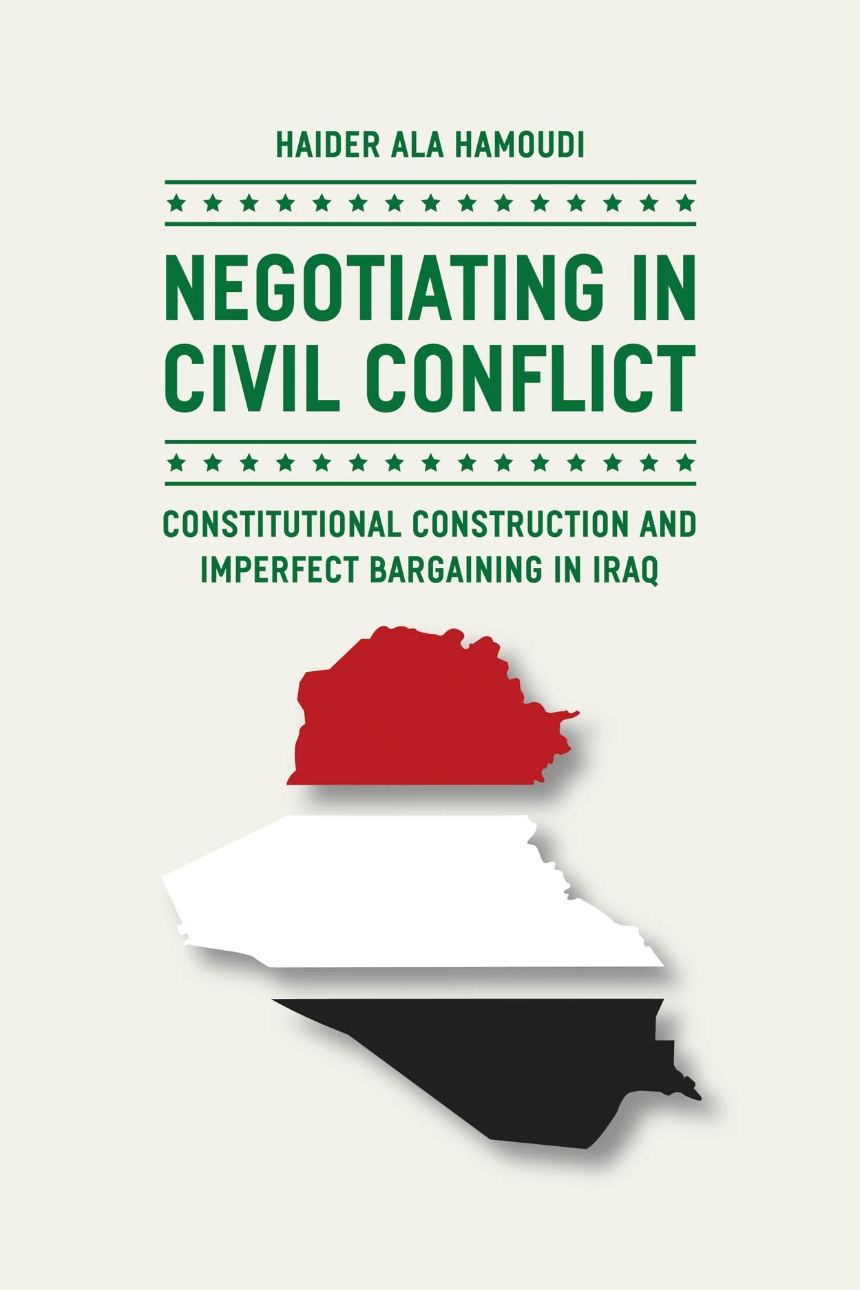Negotiating in Civil Conflict
Constitutional Construction and Imperfect Bargaining in Iraq
9780226068824
9780226315348
9780226068794
Negotiating in Civil Conflict
Constitutional Construction and Imperfect Bargaining in Iraq
In 2005, Iraq drafted its first constitution and held the country’s first democratic election in more than fifty years. Even under ideal conditions, drafting a constitution can be a prolonged process marked by contentious debate, and conditions in Iraq are far from ideal: Iraq has long been racked by ethnic and sectarian conflict, which intensified following the American invasion and continues today. This severe division, which often erupted into violence, would not seem to bode well for the fate of democracy. So how is it that Iraq was able to surmount its sectarianism to draft a constitution that speaks to the conflicting and largely incompatible ideological view of the Sunnis, Shi’ah, and Kurds?
Haider Ala Hamoudi served in 2009 as an adviser to Iraq’s Constitutional Review Committee, and he argues here that the terms of the Iraqi Constitution are sufficiently capacious to be interpreted in a variety of ways, allowing it to appeal to the country’s three main sects despite their deep disagreements. While some say that this ambiguity avoids the challenging compromises that ultimately must be made if the state is to survive, Hamoudi maintains that to force these compromises on issues of central importance to ethnic and sectarian identity would almost certainly result in the imposition of one group’s views on the others. Drawing on the original negotiating documents, he shows that this feature of the Constitution was not an act of evasion, as is sometimes thought, but a mark of its drafters’ awareness in recognizing the need to permit the groups the time necessary to develop their own methods of working with one another over time.
Reviews
Table of Contents
Acknowledgments
Introduction: The Paradoxical Success of the Iraq Constitution
CHAPTER 1. Original Bargains and Their Limitations
CHAPTER 2. Iraqi Divisions
CHAPTER 3. The Capacious Framework Text
CHAPTER 4. Identitarian Agreement in the Bargain
CHAPTER 5. Post-Ratification Consensual Construction: The Federalism Question
CHAPTER 6. Post-Ratification Consensual Construction beyond Federalism
Conclusion: Broader Lessons
Notes
Bibliography
Index
Introduction: The Paradoxical Success of the Iraq Constitution
CHAPTER 1. Original Bargains and Their Limitations
CHAPTER 2. Iraqi Divisions
CHAPTER 3. The Capacious Framework Text
CHAPTER 4. Identitarian Agreement in the Bargain
CHAPTER 5. Post-Ratification Consensual Construction: The Federalism Question
CHAPTER 6. Post-Ratification Consensual Construction beyond Federalism
Conclusion: Broader Lessons
Notes
Bibliography
Index
